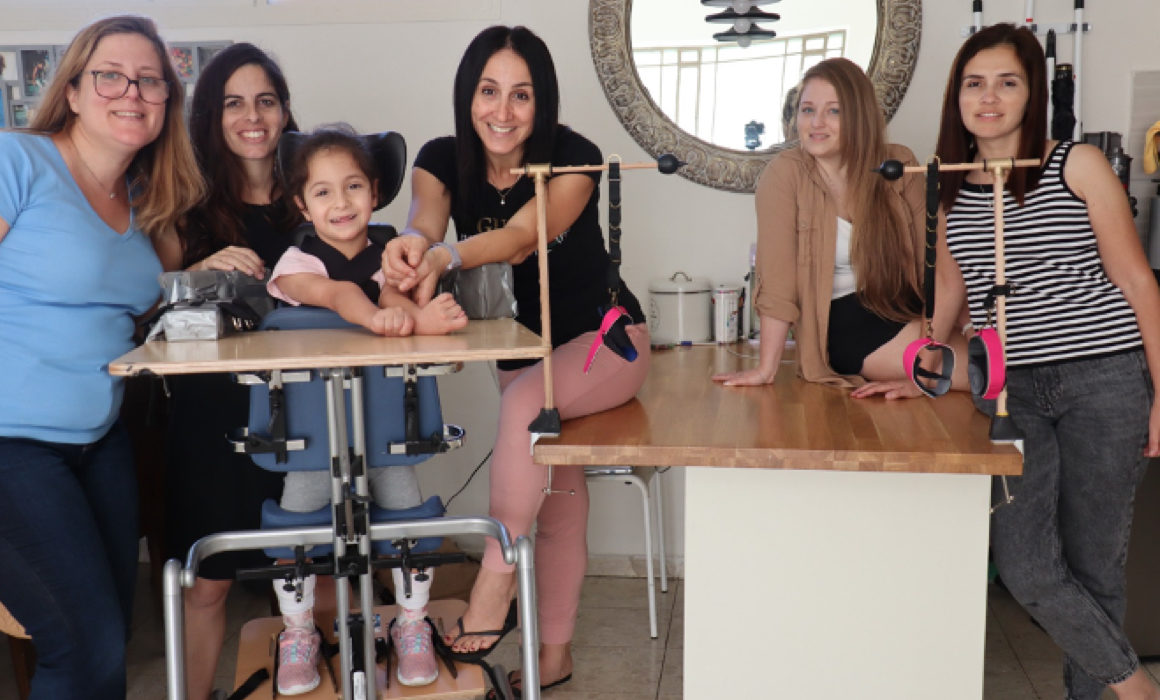Pictured Above / (Left to right): Hadas Weizman, Sana Gur-Gelbard, Shani Zigman, Orit Zigman, Mor Heinrich, Marina Gabinski
Six-year-old Shani has always yearned to draw, but her cerebral palsy has prevented her from lifting her hands independently for tabletop activities. In a heartwarming and inspiring turn of events, four students from the Technion’s Master’s of Industrial Design program teamed up with Shani’s mother to find a solution. They created an award-winning device that enables Shani to draw and eat independently for the first time in her life.
“The importance of the device to Shani and the change it has made in our lives absolutely cannot be underestimated,” said the Israeli girl’s mother, Orit Zigman.
The customized device holds and supports Shani’s arms and hands, which until now would be done manually with the assistance of a therapist whenever Shani drew or used a tablet to play games. The sleeves that support her arms and hands connect to the work surface so that Shani can work in different places, and it can accommodate different activities. Moreover, the device can be manufactured anywhere using relatively simple and inexpensive means such as a 3D printer.
The students met Ms. Zigman through Tikkun Olam Makers (TOM), a global movement of communities dedicated to creating affordable solutions for people living with disabilities, the elderly, and the poor. “When I joined the TOM Challenge and they asked me what Shani wanted most, I told them about her dream to be able to draw,” said Ms. Zigman. “As it turned out, the system we developed together not only enables Shani to draw, but also, for the first time in her life, to eat on her own.”
The device won the TOM’s Global Innovation Challenge, earning the students a cash prize and the opportunity to participate in the Expo 2020 Dubai (which had been postponed a year due to the COVID pandemic). Collaborating with Ms. Zigman, students Dana Gur-Gelbard, Hadas Weizman, Marina Gabinsky, and Mor Heinrich developed a second prototype that they presented at Expo Dubai in November 2021. The innovation fair hosted 192 countries including Israel, and is considered to be a major international, cultural, technological, and economic event.
“It was a long and challenging process,” said Gur-Gelbard. While the Technion and TOM have worked together to sponsor events on campus, Gur and her team hope to strengthen the ties. “There is no doubt that an ongoing relationship will yield important innovations for people with disabilities and for the Technion community as a whole.”


